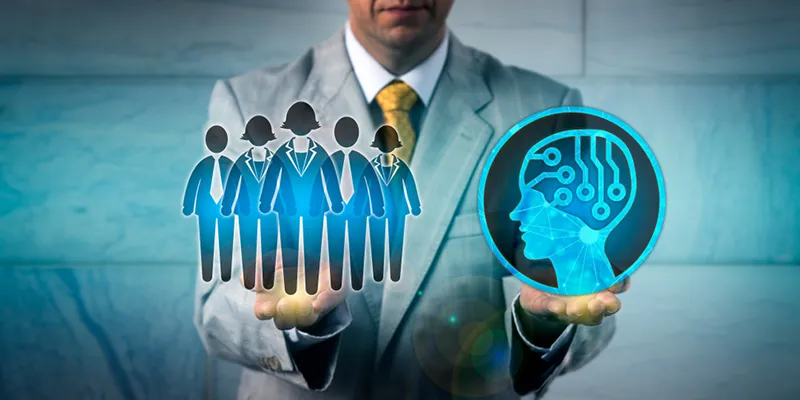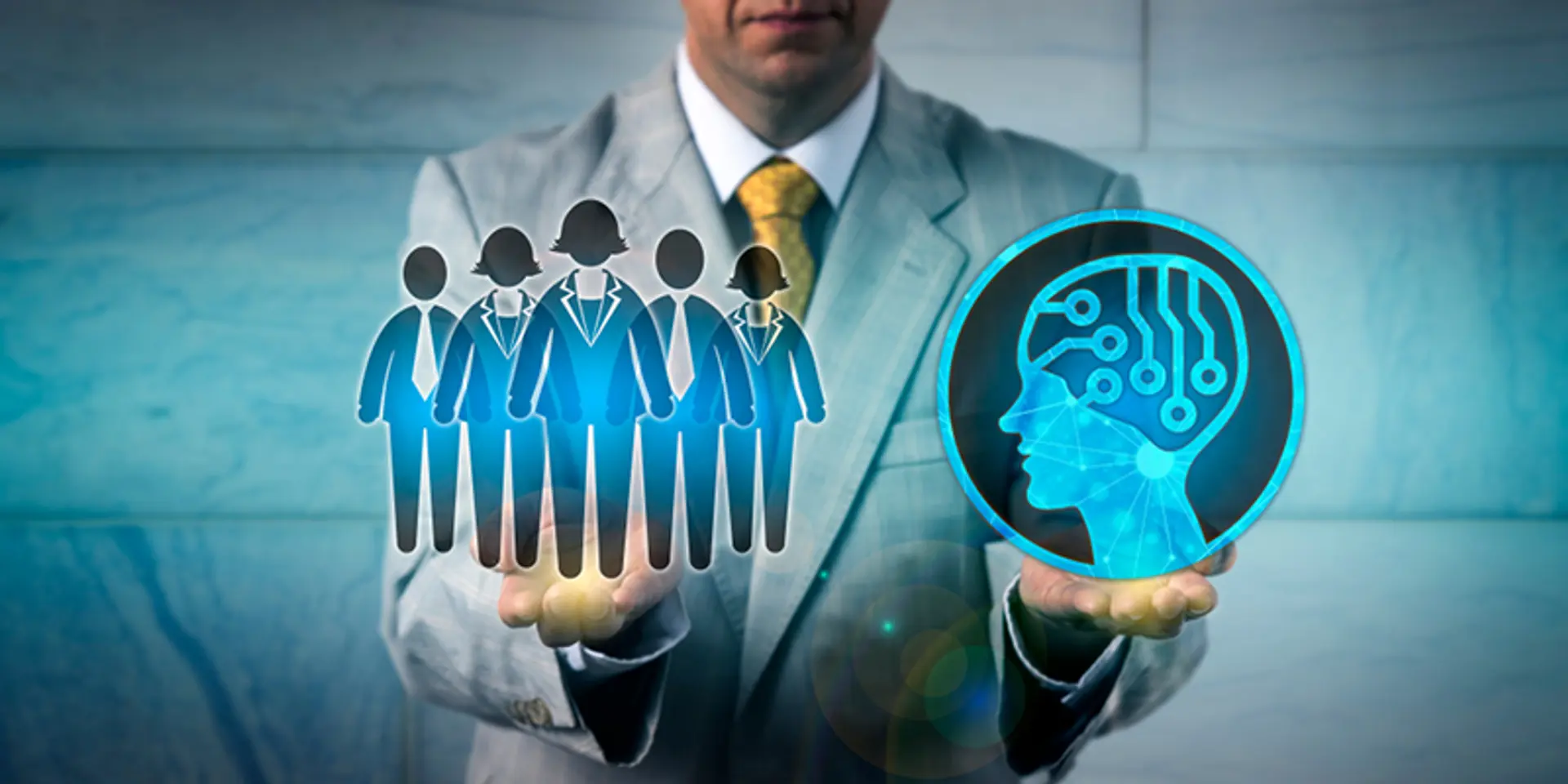Growing role of Artificial Intelligence in HR tech
The ability of a machine to perform cognitive functions associated with the human mind, AI is used everywhere from Siri conversing with a user to IBM Watson’s autonomous weaponry.

As a concept, Artificial Intelligence (AI) has been around for decades. However, it was in the last 20 years that the successful application of Machine Learning (ML) enabled the boom of AI. The ability of a machine to perform cognitive functions associated with the human mind, AI is used everywhere from Siri conversing with a user to IBM Watson’s autonomous weaponry.
AI for business
Today, AI has begun to infiltrate board rooms and engage the workforce. It is helping employees manage their time better and add strategic value to the business. It includes a range of capabilities that can solve several business problems. In fact, AI has the potential to make a tectonic shift in the efficiency and productivity of various industries by introducing full-scale automation for tedious, time-consuming tasks and augmenting various human capabilities and functions.
According to a new McKinsey Global Survey, most organisations are implementing AI devices across their standard business processes or are at least contemplating it. However, the adoption of AI is still in its nascent stages. Roughly 30 percent of the respondents of the McKinsey survey claimed to pilot the use of AI.
Many others are exploring ways of utilising it to improve their productivity, ease and efficiency. The organisations already using AI have confirmed that it has resulted in a progressive transformation of their core processes such as manufacturing, marketing, human resources, etc.
The relevance and scope of AI in HR Tech
HR is one of the core functions of any organisation. AI adoption can spell transformation for this function too. A Deloitte survey confirmed that 40 percent of respondent companies were using some form of AI in HR. However, the benefits are not immediate in nature.
Keeping that in mind, adoption of AI-based HR technology can yield both short-term and long-term benefits. Some of them are already being witnessed while others are expected with growing investments in AI and its adoption.
A growing number of startups are providing AI-based technology and services to HR functions for various activities. Some of the key ways in which AI can play a significant role in HR technology are given below:
1. Talent management
Every organisation has human capital needs and talent management refers to the organisational planning done to meet the workforce needs. As part of it, HR undertakes activities such as talent acquisition, employee management, performance management, succession management, etc.
For example, organisations like Greenhouse Software are integrating IBM-AI capabilities through the IBM Watson Candidate Assistant, a suite of AI-powered tools that matches jobs to the candidates and vice-versa based on their personalities, skills and interest areas. Greenhouse collects candidate data through various funnels including social media.
For example, it would observe minute details such as whether an employee submitted their work sample through LinkedIn or Glassdoor. It maintains scorecards for all the employees based on its own analysis with zero human intervention. This helps the interviewers sort through the applications ahead of time and keep the talent funnel ready.
2. Recruitment
AI helps companies through the process of pre-hire assessments. While assessments are nothing new, in the era of AI, a company can predict which candidate will be a better hire in the future. Sample this, a candidate applies for a role in a company by entering his resume. An AI-powered system analyses the resume and compares it to the successful employees in the same role.
A chatbot reaches out to the candidate and asks some pre-screening questions. The candidate data is collected, and AI uses it to score the candidate and present the result to a recruiter.
The recruiter then decides whether to move forward to the interview stage or not. Such data cumulatively collected can be used along with employee performance and retention data to evaluate how well a candidate will perform on the job. In this way, AI capabilities minimise the scope of human bias and speed up the recruitment process.
3. Scheduling
Already, AI personal assistants like Amy Ingram are scheduling meetings, interviews and even ordering food. Amy is a human-like AI assistant who learns from observing employee preferences over time and then manages it in an automated manner for them. Similarly, AI based tools like zoom.ai allow employees to offload and automate regular tasks like look for a file and schedule meetings. By automating the repetitive and low value add tasks, employees can focus on more strategic work. It means the employees do not have to get involved in unproductive tasks that hamper employee productivity and waste organisational time.
4. Onboarding Process
Studies suggest that employees who go through structured onboarding are 58 percent more likely to remain with the organisation after 3 years. HR can automate the many tasks of onboarding that would take hours otherwise. AI tools like zoom.ai can collect relevant data from new employees as well as generate their offer, send out the documents and answer the queries. The queries may range from how to fix the printer to setting up passwords, etc.
Not only does it save HR’s time and energy, but it also makes all the above processes swift for the new employee. Once such issues are taken care of, HR teams can focus on integrating the employee into the mainstream of the organisation.
5. Sentiment analysis
A company called Ultimate Software has built an AI platform-based sentiment analysis system ‘Perception’ to gauge employee sentiments and solve Valvoline’s workplace issues.
A sentiment analysis software is an AI-based tool that can give organisations an insight into their work processes and issues. This can help them resolve the problems that can nag the employees and impact their performance.
Perception’s system uses machine language processing algorithms – a sub-domain of AI. By collecting and analysing the languages accumulated over a period of time, Perception gauges employee feelings through it. The company then uses the learnings in order to iron out any issues related to employee well-being, boosting employee engagement.
Factors required for successful AI implementation in HR
While there is no denying that AI can lead to a significant impact on the HR value chain, there needs to be a facilitation of some fundamental factors. These factors should create a value proposition for future HR processes and workforce. The organisations need to begin with the right mindset towards AI adoption with a clear business vision. The responsibility of which does not lie only with the HR heads, but with the overall leadership. The leadership also needs to propagate AI technology adoption at every level.
For HR processes, there has to be a change management strategy in place as well to deal with the workforce’s emotional and work-related issues resulting from an organisation’s focus in this space. The initial AI pilots in HR technology need to be leveraged as examples of AI success within the HR sphere. This can be done by scaling them into initiatives that can impact the entire workforce.
The purpose of AI adoption in HR tech is to improve the productivity and efficiency of HR so that it can meet its core objectives. Employee engagement and improved employee experience are at the heart of any successful HR operation. This should be borne in mind that the ultimate role of AI in HR technology is to facilitate employee experience at all levels.
(Disclaimer: The views and opinions expressed in this article are those of the author and do not necessarily reflect the views of YourStory.)







